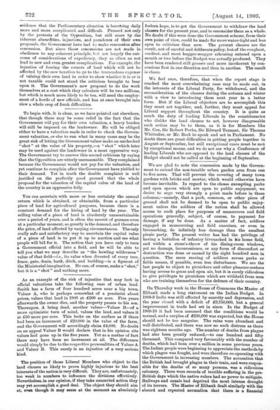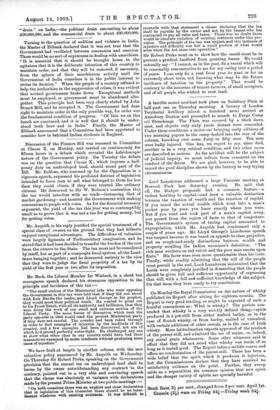On Thursday week in the House of Commons the Master
of Elibank made a long statement on the Indian Budget. In 1908-9 India was still affected by scarcity and depression, and the year closed with a deficit of 23,750,000, but a general improvement in trade had set in since. In the Budget of 1909-10 it had been assumed that the conditions would be normal, and a surplus of 2230,000 was expected, but the House should not be too sanguine. The rains were abundant and well distributed, and there was now no such distress as there was eighteen months ago. The number of deaths from plague had also been greatly reduced,—to one hundred and fifty thousand. This compared very favourably with the number of deaths, which had been over a million in some previous years. The Indian people were beginning to appreciate the methods by which plague was fought, and were therefore co-operating with the Government in increasing numbers. The accusation that the British had brought plague in their train, and were respon- sible for the deaths of so many persons, was a ridiculous calumny. There were records of terrible suffering in the pre. British days which the native rulers had no power to mitigate. Railways and canals had deprived the most intense drought of its terrors. The Master of Fdibs,nk dealt similarly with the absurd and repeated accusation that there is a financial
" drain " on India,—the political drain amounting to about £30,000,000, and the commercial drain to about f.40,000,000.







































 Previous page
Previous page